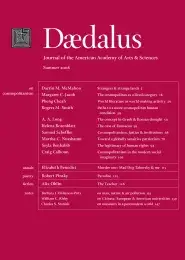The legitimacy of human rights
In recent years, the language of human rights has become ubiquitous around the world, shaping such nascent transnational institutions as the International Criminal Court, and justifying international interventions to halt genocide.1
Yet there is wide-ranging disagreement among philosophers and jurists about the nature and scope of supposedly universal human rights. Some argue that human rights constitute the “core of a universal thin morality” (Michael Walzer), while others claim that they form “reasonable conditions of a world-political consensus” (Martha Nussbaum). Still others narrow the concept of human rights “to a minimum standard of well-ordered political institutions for all peoples”2 (John Rawls), and caution that there needs to be a sharp distinction between this minimum standard and the much longer list of rights that the United Nations enumerated in its Universal Declaration of Human Rights (UDHR) of 1948.
Such disagreements inevitably raise doubts about what, precisely, should count as a human right. Walzer, for one, suggests that a comparison of the moral codes of various societies may produce a set of standards, a “thin” list of human rights, “to which all societies can be held–negative injunctions, most likely rules against murder, deceit, torture, oppression, and tyranny.”3 But this way of proceeding would yield a relatively short list. “Among others,” notes Charles Beitz, “rights requiring democratic political forms, religious toleration, legal equality for women, and free choice of partner would certainly be excluded.”4 For many of the world’s moral systems, such as ancient Judaism, medieval Christianity, Confucianism, Buddhism, and Hinduism, Walzer’s “negative injunctions against oppression and tyranny” would be consistent with great degrees of inequality among genders, classes, castes, and religious groups.
. . .
